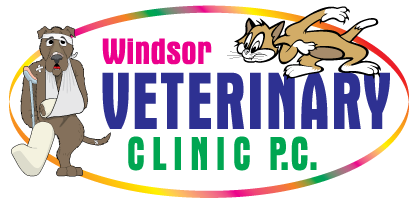Illustrated Articles
-
Clonazepam is given by mouth and is used off label to treat seizures and certain behavioral disorders. Common side effects include sleepiness, incoordination, drooling, excitement, or increased appetite. Do not use in pets that are allergic to it or other benzodiazepines or in pets with significant liver disease. If a negative reaction occurs, please call your veterinary office.
-
Clonidine is a medication that is used to treat behavioral disorders in dogs, particularly anxiety or phobia-related. Give as directed. Side effects are generally mild if present and include sedation, lethargy, agitation/excitation, aggression, and constipation. Monitoring blood pressure as well as heart rate and rhythm is recommended with chronic use. If you suspect an overdose or an adverse reaction to the medication, call your veterinary office immediately.
-
Clopidogrel is given by mouth in the form of a tablet or compounded liquid and is used off label to prevent abnormal blood clots in dogs, cats, and horses. Give as directed by your veterinarian. Common side effects include vomiting, diarrhea, or lack of appetite. Do not use in pets that are allergic to it or that have bleeding problems. If a negative reaction or bleeding occurs, please call your veterinary office.
-
Clorazepate is given by mouth and is used off label to treat epilepsy and various behavior disorders. Give as directed by your veterinarian. Common side effects include sleepiness and incoordination. Clorazepate should not be used in pets that are allergic to it or other benzodiazepines or in pets with significant liver disease. If a negative reaction occurs, please call your veterinary office.
-
Clostridial enterotoxicosis is a complex and poorly understood syndrome characterized by diarrhea that is associated with the bacteria Clostridium perfringens (CP). It is associated with either acute or chronic diarrhea. Clostridial enterotoxicosis is not caused by the bacteria directly, but rather by a toxin produced by the bacteria. Most cases of intestinal bacterial overgrowth are treated on an outpatient basis using antibiotics, nutrition, and probiotics.
-
Cloxacillin is given by mouth and is used off label to treat certain bacterial infections, most commonly staphylococcal infections. Common side effects include gastrointestinal upset such as vomiting and diarrhea. Do not use in pets that have an allergy to penicillins or cephalosporins.
-
Coagulation is the series of events that result in the formation of a clot. In the body, coagulation occurs after any injury to a blood vessel or tissue, in order to stop the bleeding. Certain diseases such as liver disease and rodenticide toxicity can affect the production of clotting factors.
-
Your cat's skin and coat condition are good indicators of her health. A healthy coat should be shiny and smooth, not brittle or coarse, and healthy skin should be supple and clear, not greasy, flaky, or bumpy. Selective breeding has led to the development of cats with various coat characteristics requiring varying grooming needs. To maintain healthy skin and coat, your cat also requires a properly balanced diet.
-
The general condition of your dog's skin and coat are good indicators of his health. A healthy coat should be shiny and smooth, not brittle or coarse, and healthy skin should be supple and clear, not greasy, flaky, or bumpy. Selective breeding has led to the development of dogs with various coat characteristics requiring varying grooming needs. Nutrition also plays an important role in skin and coat maintenance.
-
Coccidial organisms, including Eimeria, are parasites that can infect rabbits, especially young and recently weaned rabbits. These organisms invade the intestinal tract of young rabbits and can progress to cause a fatal infection of the liver in many cases. Many rabbits show no signs, but if they do, they may have infrequent or intermittent watery, mucousy, or blood-tinged diarrhea. If your rabbit's diarrhea progresses to moderate to severe in intensity, your veterinarian will hospitalize your rabbit to provide supportive care until it is well enough to go home.


